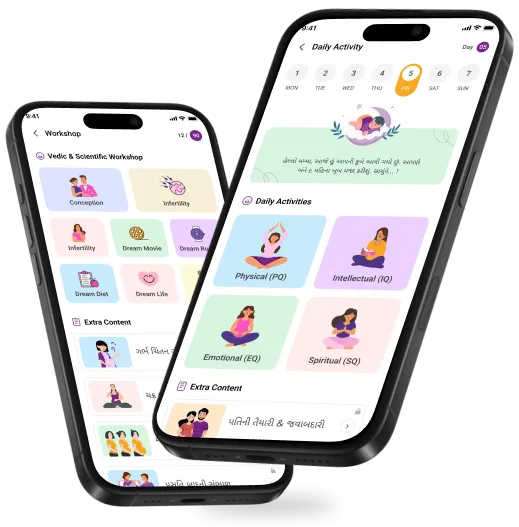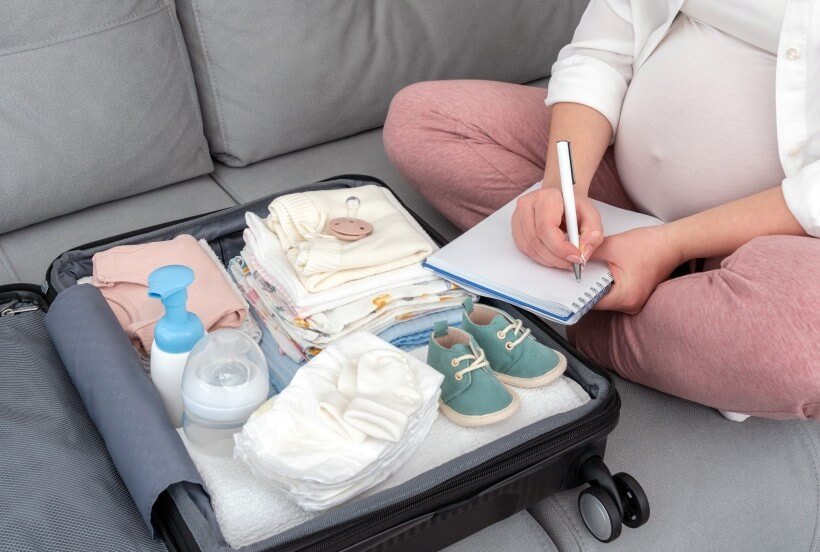Hey there, beautiful moms and mom-to-be!
Today, let’s explore the wonderful world of pregnancy. And let me tell you, it is filled with unexpected twists, turns, kicks and a whole lot of love.
Imagine this: You're sitting back, relaxing, when suddenly you feel a gentle tap from inside. It's not your own heartbeat; it's something much smaller, yet so powerful. That's right, it's your baby saying hello with a kick! Let's take a journey into the magical world of baby kicks and explore the love-filled dance happening right in your womb.
Feeling the Beat: From the earliest flutters to the full-on kicks, each movement is like a tiny dance of love. It's their way of communicating with you, letting you know they're happy, healthy, and oh-so-ready to meet you.
Bonding Through Movement: It's a dance of connection, a silent conversation between you and your baby. With every kick, your bond grows stronger, filling your heart with joy and anticipation for the journey ahead. Sometimes the kicks are soft and subtle, like a gentle whisper in your womb. Other times, they're strong and powerful.
Baby Kicks

From conception to the birth of the child, the mother has to face a lot of problems, but during this time she also experiences many wonderful things which are very important in her life.
Similar is the case of children kicking in the stomach during pregnancy. Women often get very excited about the baby's kick and they feel a different happiness when the baby kicks.
Baby Kick Time
Fetal kicks during pregnancy usually start in the fourth month, but in some women, fetal kicks start late. But there is nothing to worry about.
First pregnancy: You might not feel movement until closer to 20 or 25 weeks. First-time moms may also mistake their baby's movements for gas bubbles.
Second or subsequent pregnancies: You might feel movement as early as 13 weeks.
After the 8th month, the baby's kicking reduces significantly. In fact, there comes a time when the kick is not felt at all, because the size of your baby's body keeps increasing, due to which he is not able to move much.
But have you ever wondered why and when these kicks happen? Let's take a closer look.

Early Flutters:
In the early stages of pregnancy, those first flutters might feel like a delicate butterfly brushing against your belly. These early movements, usually felt around 16 to 25 weeks. They're your baby's way of stretching their tiny muscles and getting comfortable in their cozy home inside your womb.
Mid-Pregnancy Movements:
As your pregnancy progresses, these gentle flutters turn into more heavy kicks and jabs. Around 18 to 25 weeks, you'll start to feel more consistent movements as your baby grows stronger. These mid-pregnancy kicks may occur on certain times of the day, like after meals or when you're resting.
Peak Activity:
During the end of your pregnancy, usually around 28 to 32 weeks and beyond, your baby's movements may reach their peak intensity. You'll feel more pronounced kicks, rolls, and stretches as your little one becomes more active. These peak times of activity often occur in the evening, or when you're lying down for bed.
Sleep Time:
Despite their new strength and energy, babies need their rest too. Just like you, they have their own sleep-wake cycles. So, don't be surprised if you notice quiet periods throughout the day when your baby is resting. These sleepy times are perfectly normal and nothing to worry about.
Listen to Your Baby's Clock:
Every baby has their own schedule, so it's essential to pay attention to your baby's patterns of movement. Keep track of when you feel those kicks and notice any changes inactivity. It's a beautiful way to bond with your baby and gain insight into their daily rhythms.
{{cool-component}}
Baby Kicks & Health

Baby kicking does not mean that the child is in any trouble, rather kicking is considered a sign of its good health.
When the baby's health is good, the baby keeps moving in the stomach. One or two times a day, one should take time and count the movements while lying on the bed, placing one's hand on the stomach. Around 10 kicks, punches or other movements in an hour are considered normal.
When you have eaten food, drank juice, which means your sugar level has increased, you are resting or if you are worried, it means there is a release of adrenaline in you, baby movement is felt more.
Different Experiences of Baby Kicks

It is not necessary that the child kicks only once or the child keeps kicking for multiple times. Many times, when the mother lies on the left side, the baby's kicking increases because when the mother lies on the left side, the blood supply to the body increases. Due to which the movement of the child increases.
Unusual Baby Kicks

Just as baby's movements are a sign of health, abnormal movements can also be a sign of a problem. Don't ignore this thing. In such a situation, after eating something, lie down comfortably on your left side and count the movements, it should be around 10 in 1 hour.
When you feel very few kicks or movements, or feel any unusual movements, you should immediately talk to a doctor.
Every baby is different, so don't compare your baby's kicks to anyone else's.
Celebrate the journey
Close your eyes again and visualize this: your baby, surrounded by warmth and love, moving with grace and ease. It's a dance of life, a celebration of new beginnings. With each kick, imagine your baby sending you a message of love, filling your heart with happiness and wonder.
{{cool-component-1}}
In the end, remember this: The kicks of love you feel are more than just movements; they're a celebration of life, a reminder of the beautiful bond between you and your baby. So, embrace each kick, cherish every flutter, and get ready to dance your way into parenthood with a heart full of love and joy. Whether they're starting their day with a morning stretch or dancing up a storm in the evening, each movement is a precious reminder of the miracle growing inside you. So, cherish these moments, listen to your baby's clock, and get ready to welcome them into the world with open arms and a heart full of love.
FAQs About Baby Kicks During Pregnancy
1. Baby kicks in which week?
Baby kicks usually begin to be felt between 16 to 25 weeks of pregnancy.
2. Difference between gas bubbles and baby moving?
Gas bubbles may feel like fluttering sensations, but baby movements tend to be more distinct and can feel like taps, rolls, or gentle pokes.
3. Where do you feel baby flutters?
Early on, baby flutters are often felt low in the abdomen, resembling butterflies or gentle taps.
4. Where do you feel baby flutters at 13 weeks?
At 13 weeks, baby flutters may be felt low in the abdomen, closer to the pubic bone.
5. In which month does the baby start moving in the womb?
Babies begin to move in the womb as early as 7 to 8 weeks, but these movements aren't usually felt until later in pregnancy.
6. When can you see a baby kick through the stomach?
Baby kicks may be visible on the stomach's surface around 24 weeks, but it varies depending on factors like baby's position and the thickness of abdominal tissues.
7. Which month do baby girl movements start?
Movements of a baby girl usually begin around the same time as movements of a baby boy, typically around 16 to 25 weeks.
8. When does the baby move up above the belly button?
Around 20 to 22 weeks, the baby may start to move higher in the abdomen, sometimes reaching above the belly button.
9. Baby boy movement which month?
Movements of a baby boy usually start around the same time as movements of a baby girl, typically around 16 to 25 weeks.
10. Five months pregnant and baby not moving?
It's essential to consult your healthcare provider if you're concerned about reduced fetal movement, as every pregnancy is different.
11. Why does my baby kick more on the left side?
Your baby's position in the womb or the location of the placenta can influence where you feel kicks. It's normal for kicks to be more noticeable on one side. Many times, when the mother lies on the left side, the baby's kicking increases because when the mother lies on the left side, the blood supply to the body increases.
12. Feeling kicks on the left and right side?
It's common to feel kicks on both sides at the same time as your baby moves and stretches.
13. Baby kicks & gender prediction?
No, baby kicks don't indicate gender. Kicks can be felt in various areas of the abdomen regardless of the baby's gender.
Feel free to refer back to these FAQs throughout your pregnancy journey for insights and guidance on baby kicks and movements.
Disclaimer: This blog is correct as per the writer's knowledge. This is not medical guidance. Follow as you are responsible for.












.webp)

.webp)





